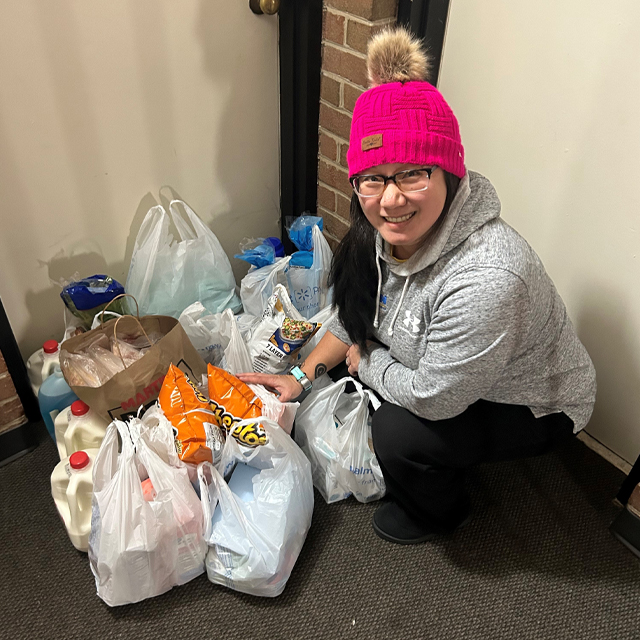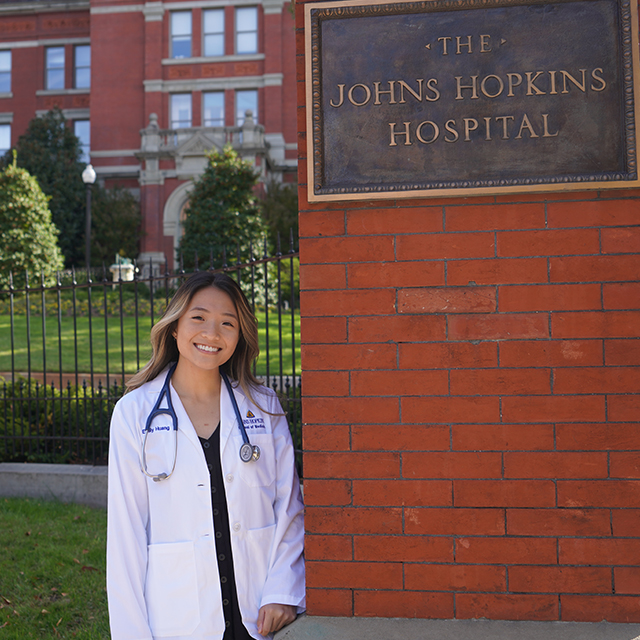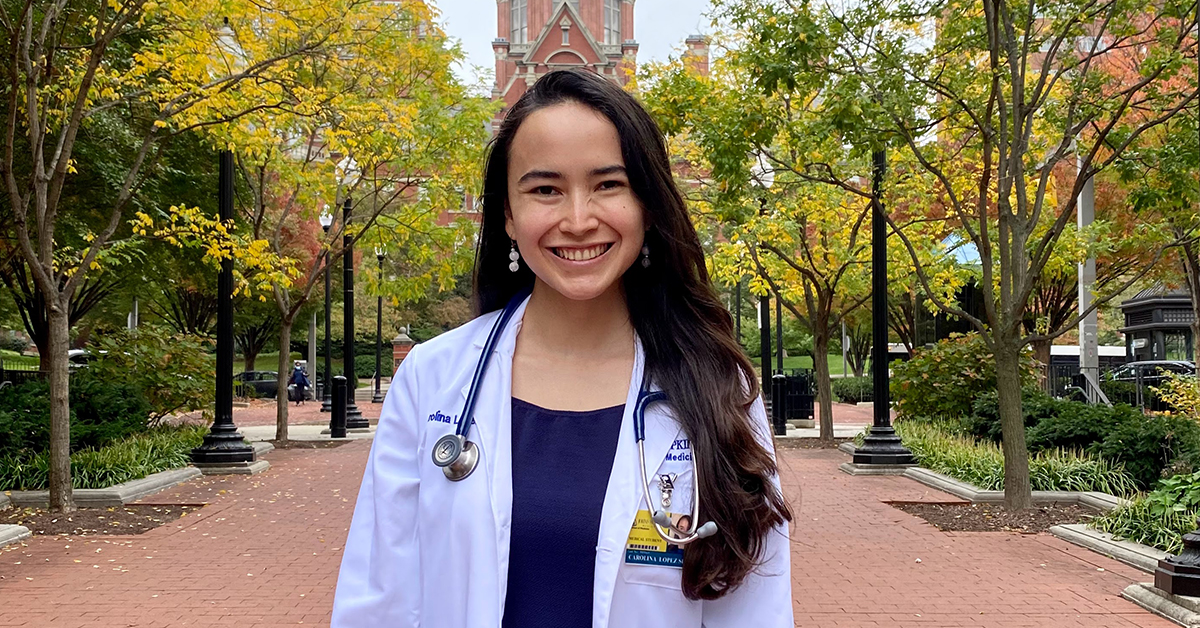First-year Johns Hopkins University School of Medicine student Serin Baek has always loved working with children. When Baek joined the student group Bamboo Sprouts, she not only got to mentor Asian American children but also developed a community with her peers.
Bamboo Sprouts is a school of medicine group through which student volunteers interact with Asian American adoptees one Sunday a month. Parents learn about the group through adoption agencies and word of mouth.
Bamboo Sprouts encourages the children to learn about Asian culture by cooking traditional Asian dishes, learning dances, playing games, discussing Asian folklore and celebrating Asian holidays. Bamboo Sprouts also collaborates with the Asian Pacific American Medical Student Association on activities.
“It’s been great to collaborate with other students and learn about their different backgrounds and experiences,” says Baek, who was born in Korea. “School can get busy, but Bamboo Sprouts has been a great way to meet people.”
The volunteers have become a source of support for the children who participate in the program.
“I try to be a good role model,” says Baek. “Bamboo Sprouts is a way for Asian adoptees to learn more about their culture and have Asian American mentors they can come to with any questions.”
Second-year medical student Ethan Knight says Bamboo Sprouts is an excellent way for kids to connect with heritages that they might not know much about because they’re from an adopted family. Knight’s mother is Chinese, and his father is American.
“It was difficult to straddle both worlds without role models outside of my parents,” Knight says. “Bamboo Sprouts has brought me a lot closer to my classmates. All the volunteers are from different Asian backgrounds, and it’s nice to learn each person’s individual take on the common roots we share. Knowing where you’re coming from is important for a sense of self.”
Knight says interacting with the kids in Bamboo Sprouts will help him with his future medical career.
“It’s further reinforced to me not to make assumptions and to treat everyone as an individual. I’m learning how important it is to have a deeper understanding of them as people,” says Knight.
First-year medical student Jennifer Lee says she enjoys focusing on cultural nuances and being there for the children.
“We’re offering kids the opportunity to find their own space and feel a part of the Asian community,” says Lee, who is Korean American. “I’m happy to see how curious and eager the children are to learn about the culture. They’re cultivating their own identities.”
First-year medical student Sarah Goldfarb says she identifies with the children in Bamboo Sprouts.
“I was adopted from China. Learning more about Asian culture and your heritage is so important,” Goldfarb says. “Our group is proud of the community it fosters, both among medical students and the families we serve. We have a lot of fun, and it gives you an opportunity to share your experiences and build relationships.”
Second-year medical student Erin Chen says the group has created bonds among the families and the medical students.
“It’s exciting to share with the kids and each other,” says Chen, whose family is from Taiwan. “Everyone brings their own experiences. It’s a fun space where people learn from each other.”
Bamboo Sprouts parent, MaryEileen Aldana, says the group has been great for her son Sean, who was adopted from Puyang, China.
“It’s a wonderful opportunity for the children to learn about their birth culture by engaging with mentors who share it. Through hearing stories, tasting foods, celebrating holidays and playing together, they learn and make connections,” says Aldana. One of Sean’s favorite events at Bamboo Sprouts included making and eating authentic Chinese dumplings.
“Another important benefit of the group is the opportunity for the children to meet others like themselves, which is critical for adoptees,” Aldana adds. “They can relate to one another in ways others cannot, and they understand each other’s perspectives because their journeys are so similar. Over time, this will help them avoid feeling isolated or alone. Our family is grateful to the medical students for their enthusiasm, time and dedication to our children.”



